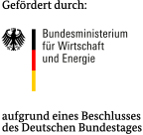Complexity Management
Complexity management in energy system modeling evaluates the trade-off between complexity and accuracy. Complexity in models needs to be managed in order to use computational resources and development time efficiently wherefore we holistically do it in METIS.
For an extensive complexity management, the full modeling chain needs to be included: from selecting the conceptual model (i.e. model type), over the design and implementation of the considered model and the preparation of input data until the postprocessing of model outputs.
Regarding the selection of the most suitable conceptual model, complexity management can provide an assignment between the current research question, the requirements for input and output data and the available conceptual models.
Methods from entrepreneurial complexity management, such as variant management, open innovation and lean software development can then be used to identify the components of the model, which need to be implemented in high level of detail while others can be depicted with less focus.
Finally, complexity reduction techniques can be applied to input data and the model formulation to vary the model complexity accordingly, ideally resulting in a tailor-made model for the specific use-case (i.e. research question). Among others, these reduction techniques comprise linearization and metamodeling as well as spatial and temporal aggregation.
 Figure 1. Complexity reduction during the modeling process.
Figure 1. Complexity reduction during the modeling process.

